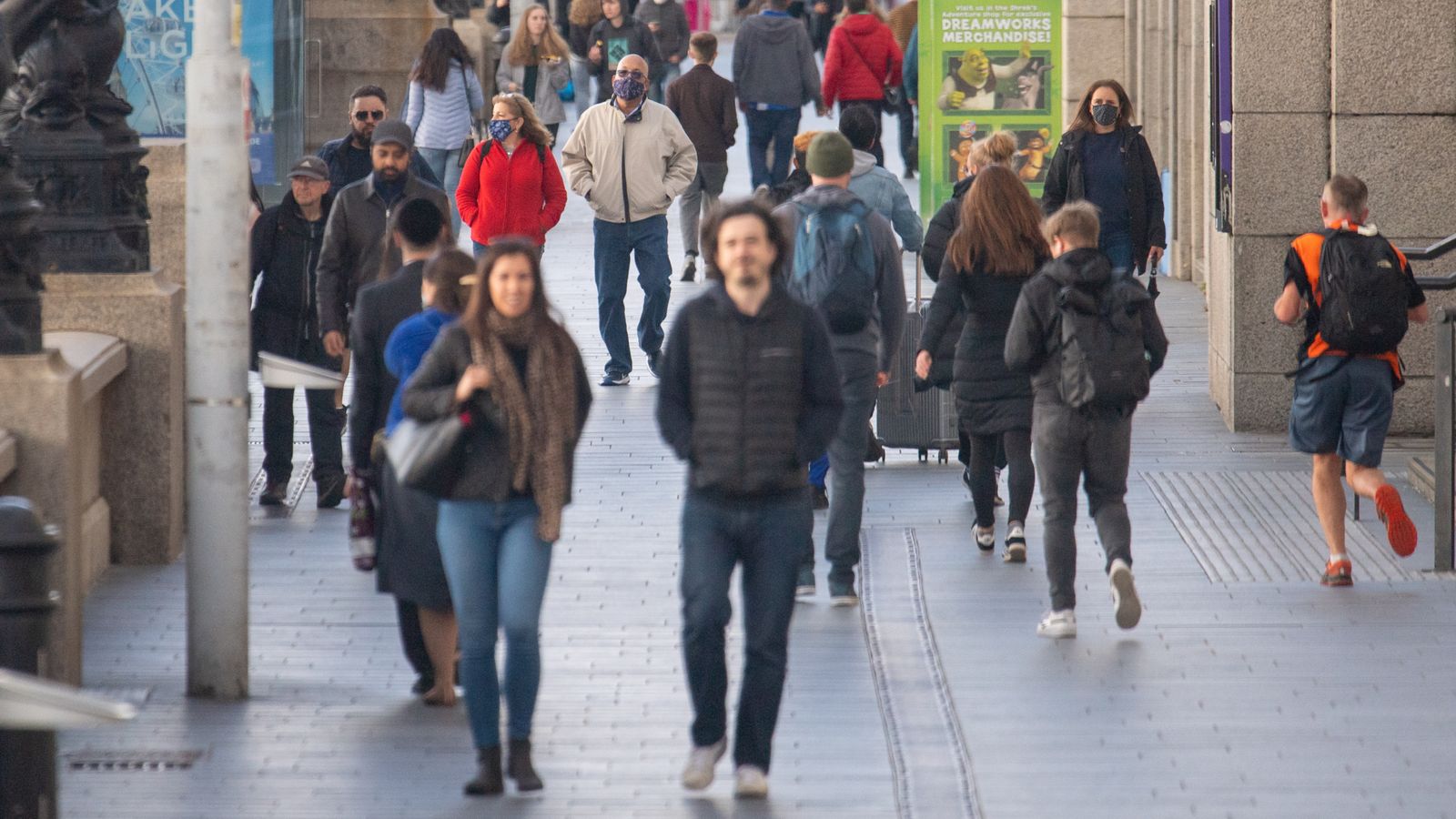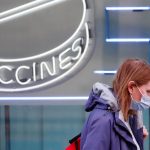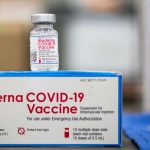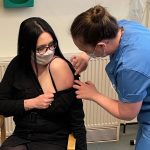England’s R number range has increased slightly from between 0.8-1.1 to between 0.9-1.1, the latest figures show.
The nationwide growth rate is estimated to be between -2% and +1 – a small increase on last week’s -3% to 1%.
The coronavirus R (reproduction) number represents the extent to which the epidemic is growing or shrinking.
The latest figures from government advisory body SAGE mean that on average every 10 people infected with COVID-19 will go on to infect between 9 and 11 others.
Live COVID updates from the UK and around the world
They also suggest that the number of new cases is fairly flat – dropping by up to 2% each day or increasing by a maximum of 1%.
Today’s numbers represent the situation two to three weeks ago, due to the delay in becoming infected, getting symptoms, and needing healthcare.
Separate data published on Friday suggests that the number of people testing positive for the virus in England is showing “early signs of a potential increase”.
The Office for National Statistics (ONS) estimates that around one in 1,110 people in private households had COVID-19 in the week to 15 May – up from one in 1,340 the previous week.
They said that the overall number of cases remains relatively low, despite the rapid spread of the Indian variant.
It comes amid doubts over the final date of the government’s roadmap out of lockdown as the number of variant cases continues to grow.
Justice Secretary Robert Buckland told Sky News on Friday that 21 June remained the “earliest” date for removing all limits on social contact – not the final date.
He also said it would “make sense” for people to continue wearing facemasks beyond Step 4 of the roadmap.
He said that “caution has been the watchword”, while PM Boris Johnson said there was currently nothing in the data to suggest the date would be delayed.
Professor Peter Openshaw, a member of the government’s SAGE subgroup NERVTAG, warned however: “I personally would feel very concerned that this is going to become quite a major issue over the next few weeks and that may well delay the further opening up.”






















